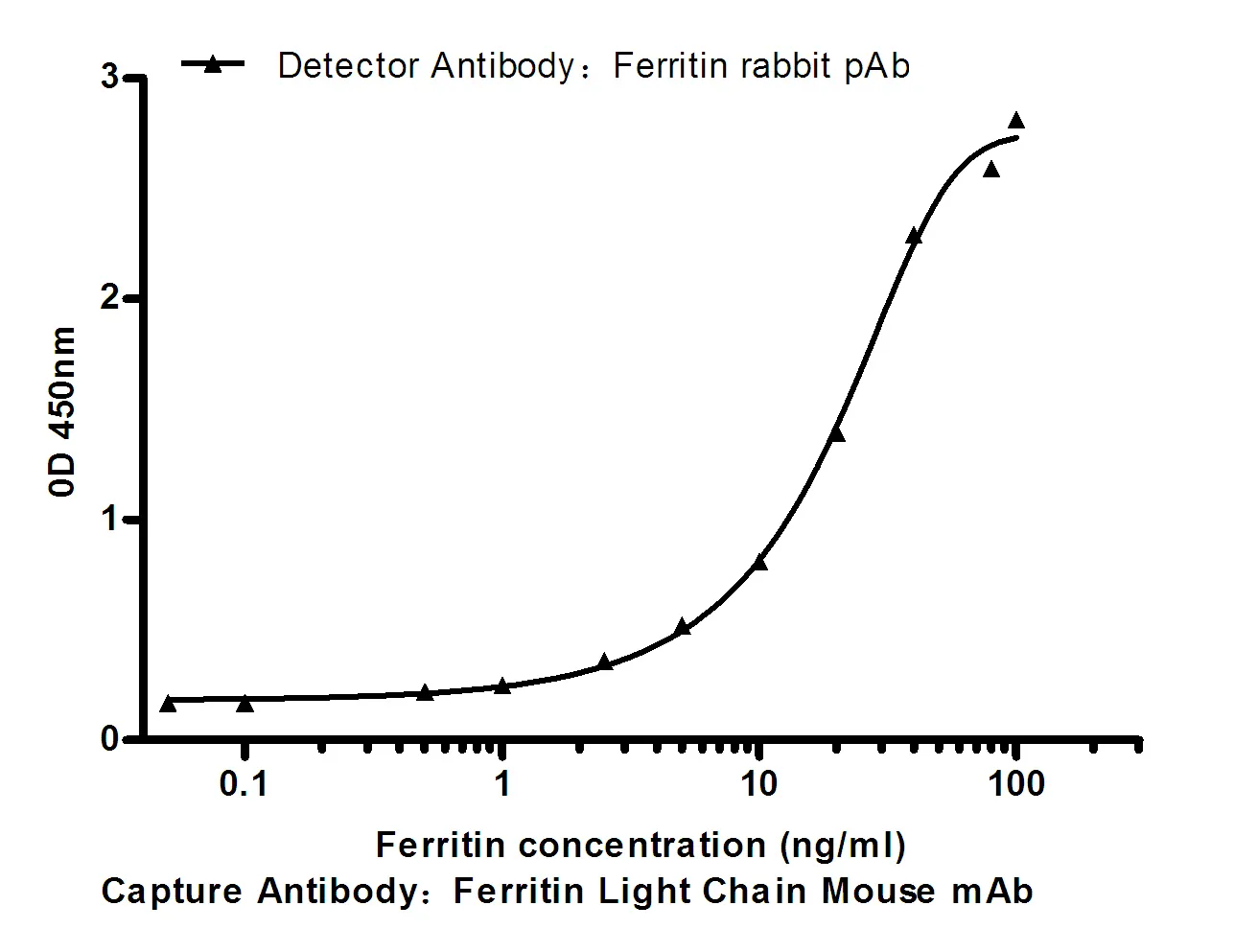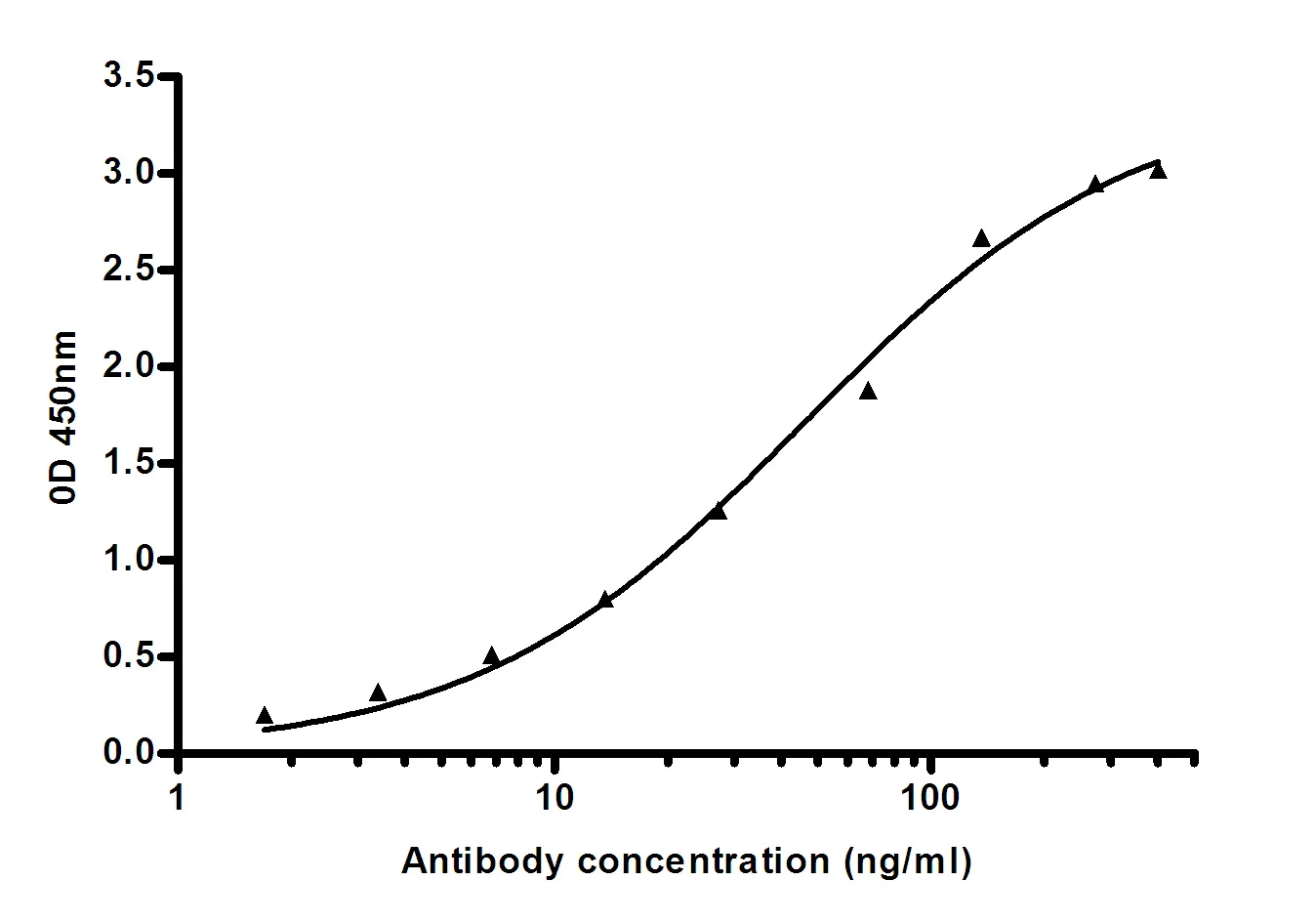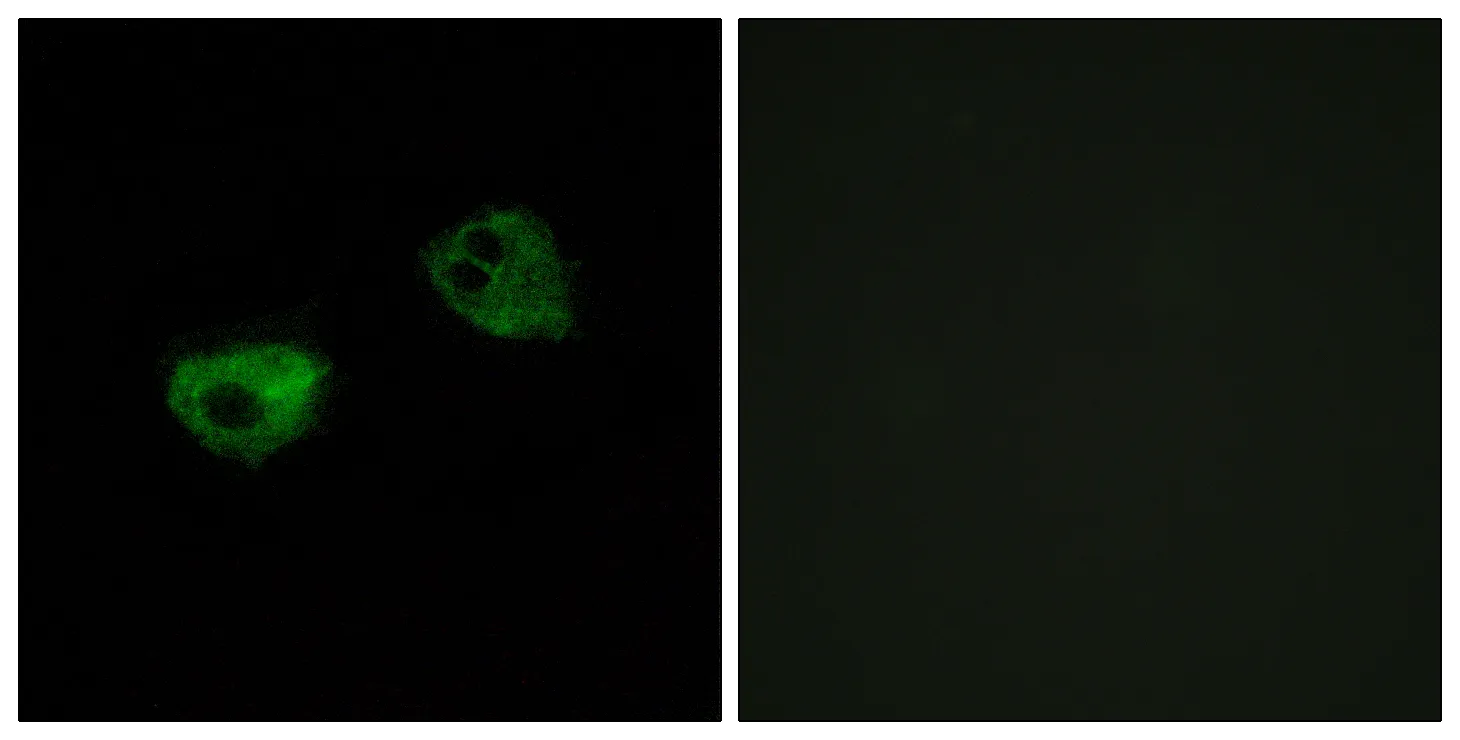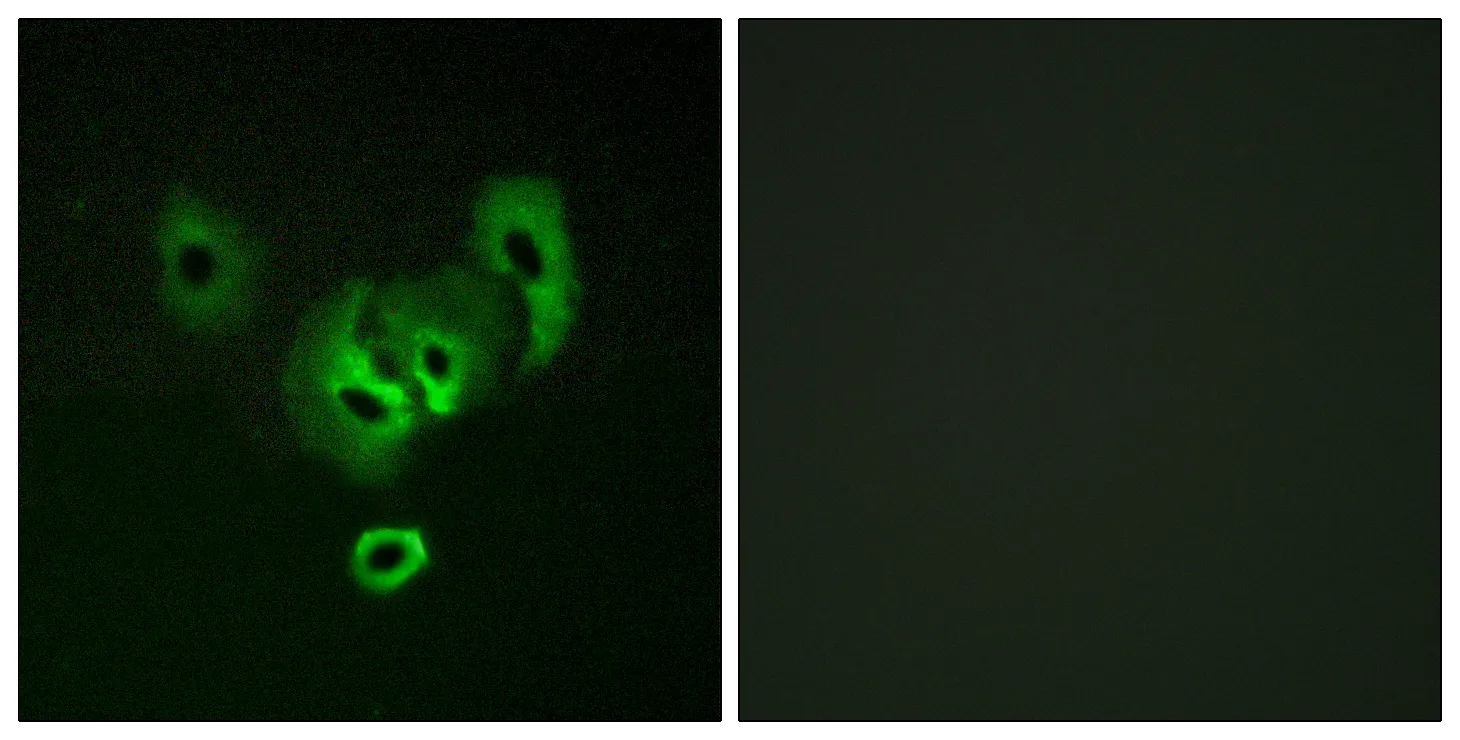Summary
Performance
Immunogen
Application
Background
The protein encoded by this gene is a plasma membrane protein whose function is to transport creatine into and out of cells. Defects in this gene can result in X-linked creatine deficiency syndrome. Multiple transcript variants encoding different isoforms have been found for this gene. [provided by RefSeq, Dec 2008],disease:Defects in SLC6A8 are the cause of X-linked creatine deficiency syndrome [MIM:300352]. X-linked creatine deficiency syndrome causes developmental delay, hypotonia, mental retardation, seizures, short stature and midface hypoplasia.,function:Required for the uptake of creatine in muscles and brain.,similarity:Belongs to the sodium:neurotransmitter symporter (SNF) family.,tissue specificity:Predominantly expressed in skeletal muscle and kidney. Also found in brain, heart, colon, testis and prostate.,
Research Area




